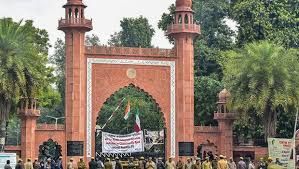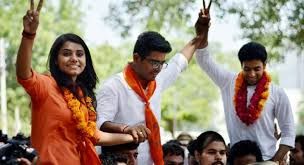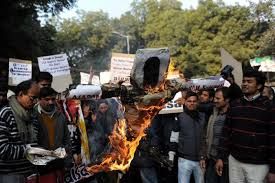Student Politics: "Boon Or A Bane"
May 19, 2019 • 205 views
The recent controversies in University of Hyderabad, Jawaharlal Nehru University and National Institute of Technology Srinagar have been widely discussed in recent past. While Rohit Vemula's suicide at University of Hyderabad brought caste politics into picture, the protests in favour of Afzal Guru at JNU and against separatism at NIT Srinagar brought issue of nationalism into picture. In the midst of these controversies, questions have been raised on the nature of student politics in India!

Whether students are liasoning with and promoting the interests of mainstream political parties or whether political parties are exploiting students for vote bank politics, the debate has captivated every Indian. The role of media in taking sides in these controversies has also been questioned. These protests were excessively linked to the intolarant debates as well by the media.
Religion and Morality are critical to how students think about politics and form there opinions on political issues.
To understand the need for politics in our institutions, the realities of society we live in need to be understood. Politics today, whether desirable or not, has become dictatorial in nature all around the world, varying only in terms of degree. It has become so pervasive that there exists no social institution that is not affected by politics or is devoid of internal politics.
Our economic development – industries, corporates, social welfare schemes, health, education, infrastructure development is all guided by political policies and practices. Political patronage determines the benefits the people of a particular religious community enjoy. Politics controls the creativity of our singers, filmmakers and actors and what they can or cannot say. It even impacts, or often controls, our personal lives – the number of children we can have (in China for example), the food that we can eat, the dress we can wear etc.

If politics is so deeply entrenched in our system, how can universities be an exception. If the goal of a university is not myopically defined to train students only in a particular subject, but is to prepare students for unforeseen and unimagined things that life has to offer, then politics is very important, as a part of college activities, for the overall development of an individual’s personality and character. It must be remembered that character building is the first step to nation building.
Also, politics is needed in institutions not only because it is present everywhere but to produce better leaders instead of having leaders foisted upon us because of their money/muscle power, or by virtue of their lineage. Since college politics has direct links with national and state level politics, it becomes a good launching pad for new faces that otherwise would not have had a chance to enter the political arena. Therefore, student politics institutionalises the merit-based search for future leaders. We have many examples of leaders who actively participated in the student politics and are doing healthy poilitics these days. For instance, Ravi Shankar Prasad, Sushil Modi etc.
Those who argue against the politicisation of institutions give innumerable examples of entire academic sessions going to waste. Even students willing to attend classes are bound by peer pressure to take part in protests, strikes etc. they assert. They condemn political violence entering the ‘temples’ of modern India. The answer to all these lies not in disallowing any form of politics in campuses but changing the kind of politics we practice.

Political theorists argue that democratic politics is not only about the ritual of elections, political canvassing etc. but refers to the dialectical environment of debate, discussion, dialogue and dissent in a peaceful setting. The intention is not to bulldoze opposing ideas but recognising the right of others to have differing thoughts or ideologiesthan yours. The same should be the case for politics in the universities. Currently, only a politics of disruption and destruction is practiced both in the national parliament and in college campuses. This adversely affects the legislative process and academics respectively.
If dynasty politics in the country has to end, we need to build platforms for them. If the youth needs adequate representation, they need to be nurtured through the union elections.
